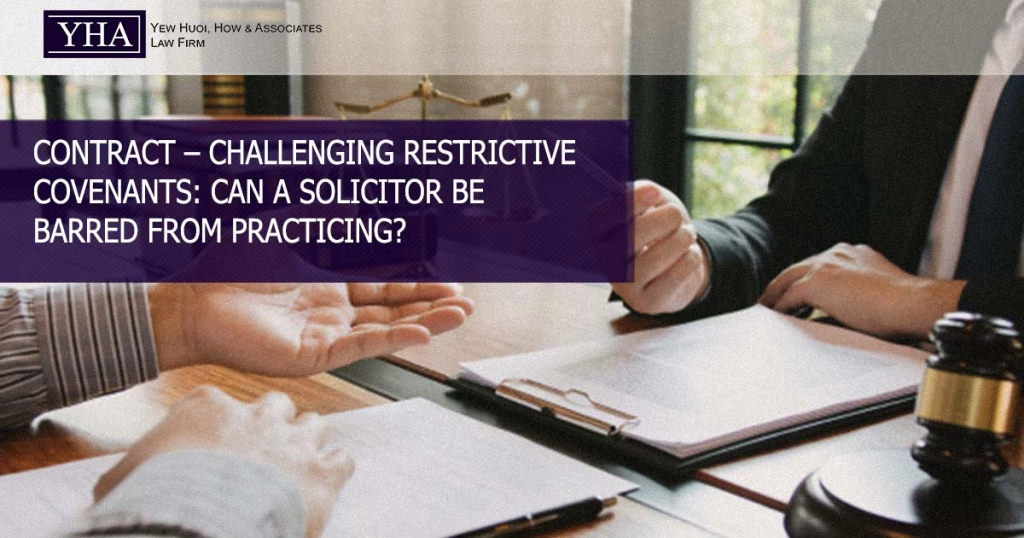Illustrative Scenario
The plaintiff, an advocate and solicitor, is the sole proprietor of the legal firm “Wringglesworth & Company” based in Kota Bharu, Kelantan. The defendant, also an advocate, was previously employed by the plaintiff’s firm. On 10.9.1962, the defendant entered into a service agreement with the plaintiff’s firm. However, on 7.12.1963, the plaintiff agreed to release the defendant from the terms of the agreement, effective 31.12.1963.
Clause 8 of the service agreement stipulated that the defendant, after termination, could not practice as an advocate and solicitor or engage in any legal business within a 5-mile radius of Kota Bharu for two years without the plaintiff’s written consent. The plaintiff has not provided this consent.
Key Issues
- Can the plaintiff lawfully prevent the defendant from practicing as an advocate and solicitor based on Clause 8?
- Can the plaintiff solely rely on the signed mutual agreement to enforce this restraint?
- Is Clause 8 enforceable as part of the terms and obligations of the service agreement?
Application to the Scenario
- The court will likely assess this case by interpreting Section 28 of the Contracts (Malay States) Ordinance, 1950, which is identical to Section 28 of the Contracts Act 1950. The plaintiff’s letter to the defendant dated 7.12.1963 will also be relevant.
- Section 28 provides that, except for three specific exceptions, any agreement that restricts someone from exercising a lawful profession is void. Therefore, the restraint imposed on the defendant under Clause 8, which prevents him from practicing as an advocate within a specific area, may be deemed void.
- The defendant is legally entitled to practice as an advocate and solicitor in Malaya, making any agreement restricting his ability to do so unenforceable.
- The language used in the plaintiff’s letter to discharge the defendant from the service agreement is clear and unequivocal. Clause 8, being part of the “terms and obligations of the service agreement,” falls within the scope of this discharge.
- Given these considerations, the court is likely to rule in favor of the defendant and dismiss the plaintiff’s claim, with costs awarded to the defendant.
Reference Cases
- Charlesworth v MacDonald (1898) ILR 23 Bom 113
- Brahmaputra Tea Co Ltd v Scarth (1885) ILR 11 Cal 545

